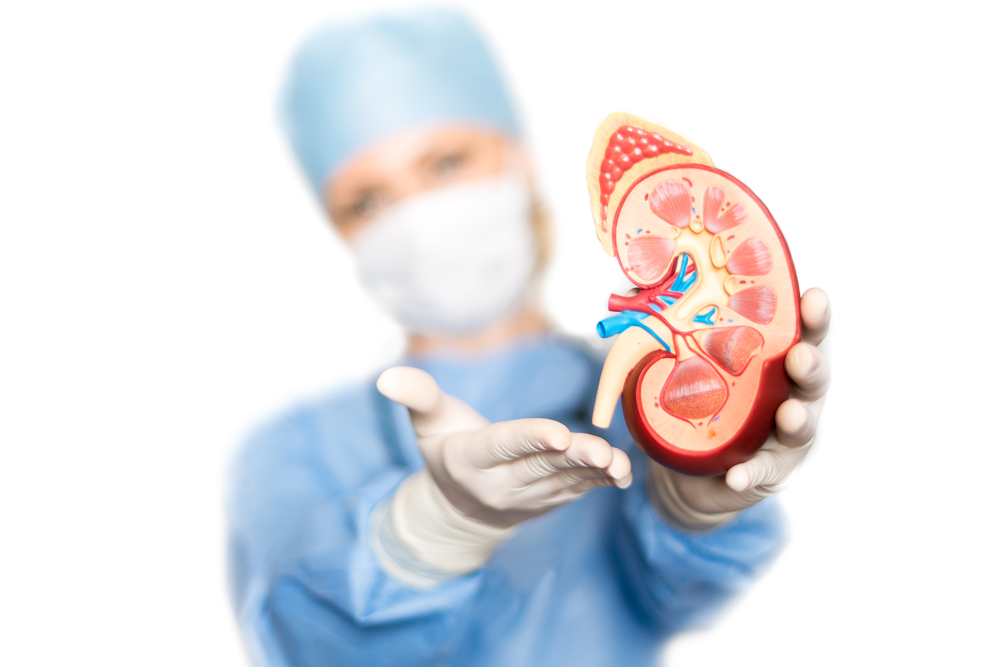Kidney Transplant: What You Need to Know Before Surgery

Kidney transplants are a life-saving procedure for those suffering from end-stage renal diseases. It allows them to live long and healthy life. If you or someone close to you are thinking about a kidney transplant surgery, it's essential to know the details of the procedure to ensure the best result. From diagnosis through surgery, there is much to think about before undergoing a kidney transplant procedure. This blog will walk you through all you must know about organ transplants.
Is a kidney transplant a necessity?
The kidney transplant procedure is an operation that involves replacing the kidney of a patient that is failing with a healthy kidney from the donor. Here are some key details to know regarding kidney transplants.
- Criteria for eligibility: Only some people are eligible for a transplant of kidney. The candidate must satisfy specific requirements to guarantee the success of the organ transplant, including having an overall good health condition and not having active cancers or infections.
- Explanation: The new kidney takes the role of the old kidney that has failed. The kidney filters waste and excess fluid from the blood and generates urine.
- Validity: A kidney transplant is an effective treatment option for majority of patients with end-stage renal diseases (ESRD) and has better survival and quality of life vs dialysis.
- Advantages: There are many advantages of choosing a transplant surgery over other options for treatment, such as a better standard of living, a better rate of survival, and fewer restrictions on food and activities.
By understanding the nature of kidney transplants and the advantages they may provide, patients can make an informed choice on whether it's the best treatment choice for them.
The preparation for a kidney transplant
Preparing to undergo a kidney transplant takes numerous steps to ensure the most effective outcome.
kidney transplant procedure
- Finding a compatible donor: One of the most crucial aspects of getting ready for an organ transplant is finding an appropriate donor. This could include a live donor, for example, someone from your family or a deceased donor.
- Evaluation procedure: Before considering kidney transplant surgery, the patient must undergo a thorough assessment to determine if they're a good candidate. This involves a thorough review of the medical record, physical tests, and tests to determine the general health and kidney function.
- Medical aspects: To prepare for the possibility of a successful transplant, patients might have to undergo additional medical procedures, including vaccines or medication, to treat current medical issues. It's crucial to discuss these issues with your medical team and follow their recommendations with care.
- Lifestyle factors: Making certain lifestyle adjustments before surgery can aid in the transplantation process's effectiveness. The changes could be as simple as quitting smoking adhering to an appropriate diet, and working out regularly to maintain general health.
When they follow these measures to get ready for an organ transplant, patients can ensure a successful procedure and a better result.
A kidney transplant procedure
The kidney transplant procedure is a complicated process that requires the kidney transfer of healthy organs from the donor to the recipient. Some crucial tips to be aware of are:
Surgical procedure: A surgical process for a kidney transplant entails cutting an incision through your lower abdominal area, then placing the healthy kidney inside the body of the recipient, then linking the kidney's blood vessels, as well as the urinary tract, to the patient's existing blood vessels and bladder.
Potential risks and problems: Like any surgical procedure, it is accompanied by some risks and possible complications. They could result in bleeding, infection, or rejection of the kidney transplanted. It's important to discuss the potential risks with your medical team and adhere to their advice closely to avoid the possibility of developing complications.
Recovery procedure: After the organ transplant, the patient has to stay in the hospital for a couple of days to be monitored for any issues. They'll also have to take medication to prevent rejection of the transplanted kidney and treat any other medical issues. The healing process can last up to a few months or weeks, and patients must follow their medical team's instructions closely during this period.
Post-surgery care: After the procedure, patients will be required to keep regular appointments with their medical team to assess the condition of the kidney transplanted and alter their medications as required. Patients will also have to adopt specific lifestyle changes to improve the effectiveness of the transplant, for example, maintaining a healthy diet and staying away from certain activities or medications which could cause harm to the kidney transplanted.
By understanding the procedure, the risks, and complications, as well as the process of recovery and post-surgery medical care required for kidney transplants, patients are better prepared for surgery and improve the likelihood of a successful result.
Life after an organ transplant
Life after an organ transplant: Life after a kidney transplant surgery" requires essential lifestyle changes and continuous medical attention. Patients need to go for follow-ups after the kidney transplant and take anti-rejection medication to avoid complications and surgery effects. The recovery involves changes in diet and daily exercise to live an active, healthy life post-transplant.
Despite the hardships, a functional kidney transplant surgery has many advantages that may provide new perspectives on life for patients. If you take the proper care and help, many patients can live a happy and healthy lifestyle following a kidney transplant procedure.
Conclusion
A kidney transplant is an important decision that requires detailed advice and planning. With the proper assistance and care, a kidney transplant surgery can give you the opportunity for a fresh start in life and provide better health. If you or someone you know is going for a kidney transplant or is experiencing symptoms, it's essential to seek help and support from a healthcare provider.






